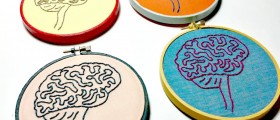I had three seizures in a row back in may and my short term memory still sucks. My memory was great I never had an issue with it before, but now I can barely remember if I pay my bills or when to pay them. I'm having trouble remembering things I never did before and it's bothering me really bad. I'm getting blamed for things not getting done because I honestly can not remember. I just wanna know will my short term memory ever be the same again?
Loading...
I'm sorry to hear about your experience with seizures and the subsequent memory issues. Memory problems can be distressing, especially when they impact daily life. Here are a few things to consider:
-
Seizures and Memory: Seizures, especially if they occur in the temporal lobe (which plays a role in memory), can indeed cause memory issues. Additionally, the frequency, duration, and severity of seizures might influence the extent of memory impairment.
-
Recovery Time: The effects of a seizure can vary from person to person. While some people might experience temporary memory problems that improve over time, others might find the issues persist. It's crucial to be patient and give yourself time, but also to communicate with a neurologist or another healthcare professional about your concerns.
-
Other Factors: Apart from the seizures themselves, other factors might contribute to memory problems. For instance, certain antiepileptic drugs (AEDs) can have side effects that impact memory. Stress, anxiety, sleep disturbances, and other medical conditions can also influence memory function.
-
Management and Support:
- Memory Aids: Using tools like calendars, alarms, apps, and reminder notes can help manage daily tasks and improve function.
- Cognitive Rehabilitation: This type of therapy aims to improve cognitive function after brain injury or other neurological conditions. A trained therapist provides strategies and exercises to enhance memory and other cognitive skills.
- Medication Review: If you're on any medications, particularly antiepileptic drugs, it's worth discussing the potential side effects and considering alternative treatments with your doctor if memory issues persist.
-
Seek Medical Advice: A comprehensive assessment by a neurologist can help identify the root causes of your memory problems and guide appropriate interventions. They might recommend neuropsychological testing to assess the extent and nature of any cognitive impairments.
Good luck. Feel free to ask anything else, if needed.
Loading...
















